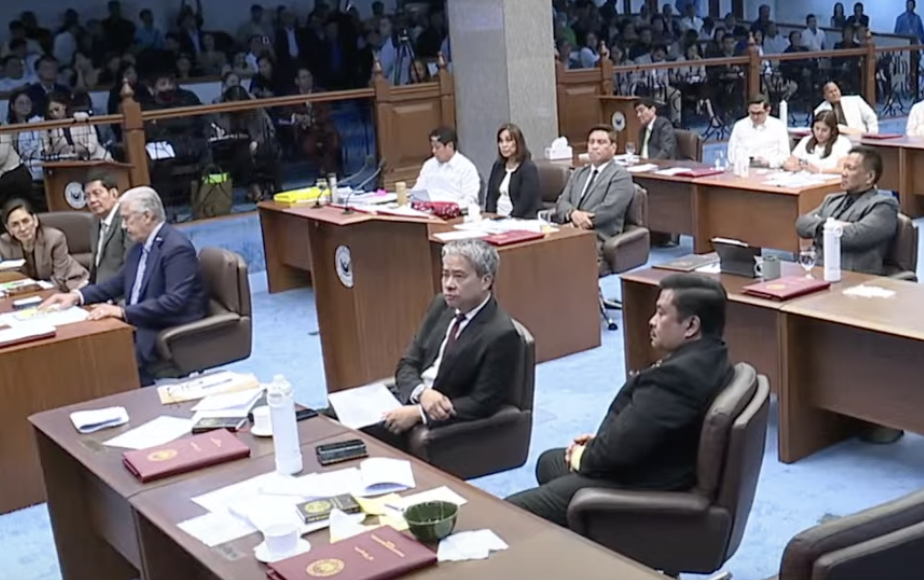
| Published August 7, 2025
In a highly anticipated Senate session that capped off years of political drama, the Philippines’ upper chamber voted overwhelmingly to archive the articles of impeachment against Vice President Sara Duterte. With 19 senators voting in favor, 4 against, and 1 abstention, the move effectively halts the proceedings — for now — in deference to a recent ruling by the Supreme Court declaring the impeachment complaint unconstitutional.GMA NetworkInquirer NewsAsia News Network
The Constitutional Curtain Call
On July 25, 2025, the Supreme Court issued a unanimous ruling that the impeachment complaint violated the constitutional safeguard limiting impeachment attempts to one per official per year. As a result, the court declared the articles of impeachment null and void ab initio, noting that the House already had filed multiple complaints — only one of which was transmitted to the Senate — thereby depriving the Senate of proper jurisdiction.
This decision has effectively barred any impeachment trial of VP Duterte until February 2026, when another complaint could, in theory, still be filed.
Senate Show of Unity — And Friction
The Senate’s vote to archive came after initial deliberations on a motion by Senator Rodante Marcoleta to outright dismiss the impeachment. However, Senate Majority Leader Joel Villanueva amended the motion, urging instead to archive the complaint — a move that won broader support.
In response, Senate Minority Leader Vicente “Tito” Sotto III decried the move, arguing it effectively abandons the Senate’s constitutional duty to try impeachable officials. Senator Risa Hontiveros echoed the dissent, emphasizing that the Constitution entrusts the Senate with trial authority.
In contrast, pro-archiving senators — including Alan Peter Cayetano, Pia Cayetano, Ronald “Bato” dela Rosa, Marc Lapid, Loren Legarda, Imee Marcos, and Robin Padilla, among others — argued that they were upholding the rule of law and respecting the Supreme Court’s command. Senate President and Escudero himself framed the vote as a choice for principle over passion.
Senator Juan Miguel Zubiri, who voted in favor, made a striking point: even archived, the documents can be retrieved should the Supreme Court reconsider its ruling. Meanwhile, Panfilo Lacson, the lone abstainer, stated his preference to await the final resolution from the High Court before making a judgment.
What Comes Next?
With the impeachment complaint officially archived, the Senate has paused its proceedings — but not completely terminated them. If the Supreme Court reverses its ruling, or if a new complaint is filed after February 2026, the case could be retrieved from the archives and proceed again. For now, though, Sara Duterte emerges politically unscathed from this particular showdown, awaiting what could be the next act in this fraught drama.

Philippine Vice President Sara Duterte delivers a statement following her impeachment by the lower house of the Congress, in her office at Mandaluyong City, Metro Manila, Philippines, February 7, 2025. REUTERS/Eloisa Lopez/File Photo Purchase Licensing Rights

The Senate on Monday voted to transfer to the archives the articles of impeachment against Vice President Sara Duterte, following the decision of the Supreme Court (SC) to declare her impeachment unconstitutional.
 Implications:
Implications:
Here are the key implications of the Senate’s decision to archive the impeachment case against VP Sara Duterte, both politically and constitutionally:
🔍 1. Supreme Court’s Influence Over Impeachment Proceedings Grows
The Senate’s action was primarily based on the Supreme Court’s ruling, which declared the complaint unconstitutional due to the “one-impeachment-per-year” rule. This sets a strong precedent:
-
Future impeachment attempts may now be blocked in the judicial phase before reaching trial.
-
The ruling limits the power of Congress, especially the House, to challenge high-ranking officials through impeachment — a shift in the balance of power.
🧠 Implication: The judiciary has asserted itself more aggressively in what was traditionally a purely legislative political process.
🛡️ 2. Political Shield for Sara Duterte — Temporarily
For Vice President Sara Duterte:
-
This ruling and the Senate’s action act as a temporary shield against political opponents.
-
Her critics, mostly from the opposition and progressive blocs, are now legally barred from filing another complaint until February 2026.
🧠 Implication: Duterte has gained breathing room to consolidate political power, especially ahead of 2025 midterms and possibly a 2028 presidential bid.
⚖️ 3. Checks and Balances Under Scrutiny
Critics argue that archiving the case without trial weakens the Senate’s constitutional duty to act as an impeachment court:
-
Senators like Sotto and Hontiveros argue this undermines the system of checks and balances.
-
Others argue the Senate simply respected the rule of law as interpreted by the Supreme Court.
🧠 Implication: There’s growing debate on whether constitutional oversight mechanisms are being weakened or simply following legal boundaries.
🗳️ 4. 2025 and 2028 Elections Calculus Changes
-
Duterte’s allies in the Senate have closed ranks around her, potentially strengthening her party’s influence in Senate slates for 2025.
-
Presidential aspirants for 2028 — like Bongbong Marcos, Imee Marcos, or Alan Peter Cayetano — may now recalculate alliances or confront Duterte earlier.
🧠 Implication: The impeachment drama just became a central issue in future coalition building and campaign narratives.
🌐 5. International Perception: A Test of Institutions
Observers abroad — especially in diplomatic circles — are watching how Philippine institutions handle executive accountability:
-
The smooth resolution (via legal means) rather than a political showdown may boost stability in the short term.
-
However, archiving over trial may be seen as a sign of institutional weakness or “elite protection.”
🧠 Implication: This may affect investor confidence, human rights evaluations, and foreign diplomacy—especially among democratic allies.
 Overall Takeaway: A Pause, Not a Closure
Overall Takeaway: A Pause, Not a Closure
The Senate’s decision to archive the impeachment case against Vice President Sara Duterte is not a vindication, but a legal and political pause — driven more by constitutional technicalities than by resolution of the accusations.
It reveals how:
-
The Supreme Court can now override or limit impeachment processes, reshaping the balance of power.
-
Sara Duterte gains time and political breathing room, possibly clearing her path to higher office in 2028.
-
The Senate chose legal safety over a political trial, drawing criticism from those who see it as avoiding accountability.
In short, this is not the end of the story — just the end of this chapter. The real test will come in 2026, when a new complaint can be filed, and in 2028, when Duterte’s political ambitions may reach their peak.





Be the first to comment